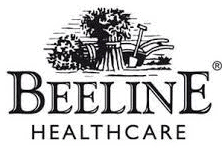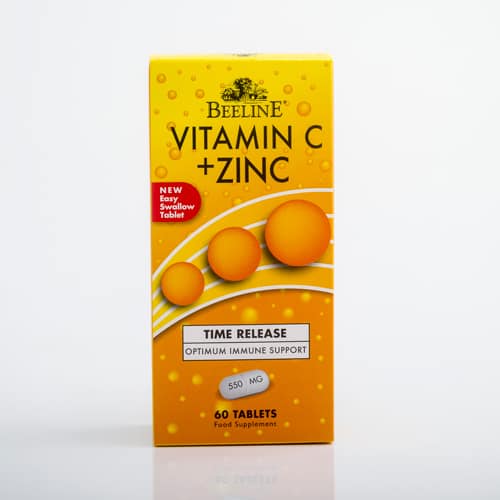Zinc Benefits, Sources and Supplements
Zinc is an essential mineral. The benefits of zinc include providing nutrients to support a healthy immune system, good metabolism, reducing inflammation, enzyme reactions, fighting infections, collagen synthesis and digesting food. Zinc sources include certain foods and dietary zinc supplements.
What is Zinc?
Zinc is an essential nutrient that is required for many biological functions, and should be part of everyone’s daily diet. It is present in most of the cells in our bodies including our muscles, bones, skin, liver and other organs.
Zinc is vital for the proper functioning of hundreds of enzymes that carry out essential chemical reactions within the body. The essential mineral is needed for good health, wellbeing, growth, healthy skin, good hair, strong nails, good metabolism, regular digestion, collagen synthesis, inflammation response, nerve function, fighting infections and processing food.
Our bodies cannot produce or store zinc for any length of time. Therefore, it needs to be consumed regularly.
Having adequate level of zinc are of particular importance during periods of growth. This includes during childhood, adolescence and while pregnant.
What is Zinc Good for?
Zinc is an essential nutrient. It is a mineral that plays a vital role in many of our bodily processes. These include immunity, metabolism, genes, DNA, enzyme reactions, collagen synthesis, inflammation response, nerves, cell growth, and senses of taste and smell.
Zinc Benefits
So what does zinc do for the body? The benefits of zinc and taking zinc supplements include:
- Contributing to the normal function of the immune system to help the body resist infection and fight illness.
- Reducing inflammation by decreasing oxidative stress in cells and tissues, which leads to chronic inflammation.
- Helping combat the common cold and flu viruses by boosting our immune system, and reducing the length of time being ill with cold and flu infections.
- Assisting with reducing the severity of respiratory tract infections including cold, flu, sinusitis, pneumonia and Covid-19. A recent review of 28 clinical trials published in The British Medical Journal (BMJ) has highlighted that zinc supplements may prevent symptoms and reduce duration of respiratory tract infections. These occur in the sinuses, throat, airways or lungs. The symptoms of infection include coughing, sore throat and congestion, which all impact breathing.
- Maintaining healthy hair.
- Growing and maintaining strong nails.
- Contributing to good healthy skin by being a cofactor in the production of collagen. Zinc has been used to help treat acne, as people with acne tend to have low levels of zinc.
- Helping heal damaged tissues, which reduces the time to heal wounds, cuts, skin injuries and burns.
- Providing an essential part in cell growth, DNA synthesis and protein production, which are vital for the body to survive, develop and reproduce.
- Assisting with a properly functioning sense of taste and smell in a person.
- Aiding good metabolism by helping the body breakdown carbohydrates to convert food into energy.
- Assisting the central nervous system to function properly.
- Supporting good cardiovascular heart health and blood vessels.
- Regulating blood sugar, which is important for diabetes sufferers.
- Aiding with good eyesight.
- Contributing to a healthy pregnancy and reducing the risk of premature birth.
- Contributing to children and teenager’s normal growth and development by playing a part in cells growing and multiplying.
- Helping heal diaper rash in infants.
- Reducing the impact of diarrhoea for children.
- Potentially helping reduce the severity of symptoms of attention deficit-hyperactivity disorder (ADHD) in children.
- Helping lower the risk of diseases associated with old age including pneumonia and age-related macular degeneration (AMD) of the eyes.
- Possibly assisting improve depression and mood.
- Potentially assisting prevent stomach ulcers.
Zinc Deficiency
Zinc Deficiency occurs when you do not have adequate levels of zinc in your body. This is due to either not taking enough zinc, not absorbing it properly or due to chronic illness. Zinc deficiency can lead to oxidative stress, which happens when too many free radical are in the body that can cause damage to our cells, tissues and health.
Diagnosing zinc deficiency can be done via using blood, urine and hair tests.
Symptoms of Zinc Deficiency
The symptoms of a zinc deficiency in adults can include:
- A poorly functioning immune system.
- Frequent colds and flu.
- Lack of energy.
- Poor mental alertness.
- Diarrhoea.
- Slow healing of wounds.
- Skin rashes.
- Poor sense of taste and smell.
- Weight loss.
- Hair loss.
- Loss of appetite.
- Sexual dysfunction.
Who is at Risk of Zinc Deficiency?
People who are at the risk of zinc deficiency include:
- People suffering with illnesses including Crohn’s disease, diabetes, cancer liver disease and celiac disease, alcoholism, sickle cell disease, ulcerative colitis and pancreatic issues.
- Older people.
- Infants, children and teenagers.
- Pregnant women. According to the World Health Organization (WHO), over 80% of pregnant women worldwide have inadequate zinc intake.

Sources of Zinc
The human body cannot produce zinc or store it for any period of time. Therefore, it must be regularly consumed through our diet. The sources of zinc are certain types of food and dietary supplements.
1. Zinc in Food
Zinc foods include:
- Red meat including beef, pork, and lamb.
- Shellfish including oysters, crab, mussels, shrimp and lobster.
- Chicken and poultry.
- Legumes including chickpeas, beans and lentils.
- Seeds including pumpkin or squash seeds.
- Dairy produce including cheddar cheese, milk and yoghurt.
- Nuts such as cashews, peanuts and almonds.
- Eggs.
- Whole grains.
- Vegetables such as spinach, green beans and kale.
- Dark chocolate.
2. Zinc Supplements
Dietary supplements are the second source of zinc. Beeline Healthcare have a number of zinc supplements to provide the recommended daily allowance and boost your immune system. These include:
Beeline Vitamin C + Zinc Time Release Tablets, Beeline Vitamin C and Zinc Effervescent Tablets and Beeline Vitamin C + Zinc Chewable Tablets provide double action immune support to help maintain a healthy immune system, fight off infections, combat cold viruses and reduce fatigue.
Beeline Elderflower + Vitamin C + Zinc Chewable Tablets and Beeline Elderflower Vitamin C + Zinc Effervescent Tablets provide triple action immune system support to aid with resistance to infection and the symptomatic relief of sore throats, cold and flu.
Beeline Calcium, Magnesium, Zinc and Vitamin D3 Tablets is a supplement that includes 100% of the recommended daily allowance of calcium, magnesium, zinc and vitamin D3 combined with 6 supporting organic marine minerals.
Recommended Zinc Supplement Dosage
How much zinc should I take? According to the Health Service Executive (HSE), women need 7mg per day and men need 9.5mg of zinc per day. Unless advised by your doctor, the recommended zinc supplement dosage is to not take more than 25mg of zinc supplements each day.
Questions Zinc
- What zinc is good for?
As an essential mineral, Zinc is good for supporting many bodily processes. This includes the immune system, growth and development, healthy skin and hair, strong nails, good metabolism, normal digestion, collagen synthesis, reducing inflammation, the central nervous system and converting food into fuel for the body.
- How much zinc should I take?Unless advised by your doctor, the recommended zinc supplement dosage is to take less than 25mg of zinc supplements each day. Women require 7mg of zinc per day and men need 9.5mg of zinc per day.
- What zinc supplement is best?The best zinc supplement is a Beeline Zinc supplement, which provides the recommended daily allowance of zinc for boosting your immune system. Popular supplements amongst consumers include Beeline Vitamin C + Zinc Time Release Tablets and Beeline Vitamin C and Zinc Effervescent Tablets.


